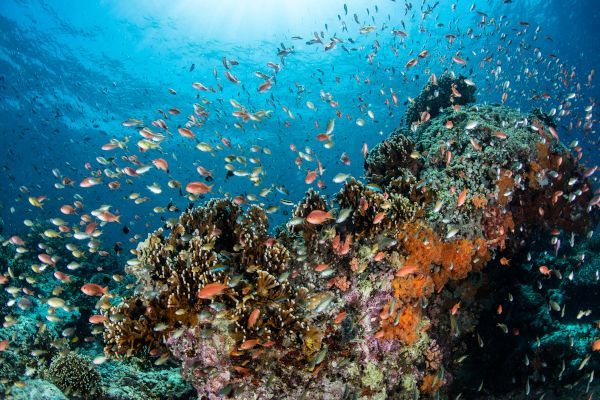Scaling up nature-based solutions, mainly those oriented towards Eco-RRD, to improve resilience in Colombia's coastal marine socio-ecosystems.

Colombia is a highly vulnerable country to the effects of climate variability and climate change, due to its geographical location, ecosystem diversity and socio-economic conditions. Between 1970 and 2011, more than 28,000 disastrous events have been recorded, of which about 60% have been reported from the 1990s onwards. In response to this complex situation, Colombia aims to promote alternatives for climate change adaptation and disaster risk reduction through ecosystem management. Particularly for risk management, a number of initiatives were identified in 2020 that respond to the reduction of different hazards through nature-based solutions commonly referred to as Eco-DRR measures.
This initiative aims to scale up the implementation of Eco-DRR measures by presenting them as a viable alternative in a highly diverse country like Colombia. To this end, it seeks to prioritise strategic marine-coastal ecosystems for disaster risk reduction, establish the conceptual framework for Eco-DRR measures in Colombia and draft a practical and user-friendly guide for the implementation of these measures. The design of indicators to monitor and evaluate the effectiveness of the measures to be implemented will be essential to verifying their effectiveness in the long term, ensuring links with the National Climate Change Information System, as a determinant mechanism in decision-making. To complete, a pilot initiative will be carried out based on all the knowledge acquired during this action.
This action will support the achievement of two of Colombia's NDC targets, the 20 "By 2030 the country will have an Integrated Information System on Vulnerability, Risk and Adaptation to Climate Change (SIIVRA)", the 28 "Adoption and implementation of 100% of the Integrated Zoning and Management Plans for Coastal Environmental Units (POMIUAC) with ecosystem-based adaptation (EbA) actions on mangroves and seagrasses, and other coastal ecosystems" and the 29 "Six initiatives for climate change adaptation and risk management for the sustainable use of mangroves (blue carbon ecosystems) under implementation, with a timeframe to 2030". The initiative is also aligned with the priorities of the National Disaster Risk Management Plan, the National Climate Change Adaptation Plan and the Integrated Climate Change Management Plans of the Environment sector.
Objetive
Increase the resilience of marine-coastal populations to the adverse effects of climate change through the implementation of ecosystem-based disaster risk reduction (Eco DRR) policies and projects.
